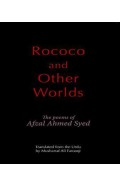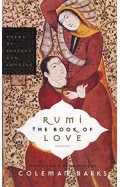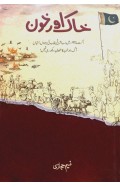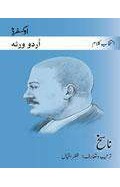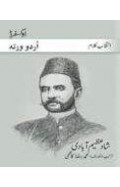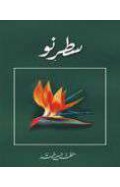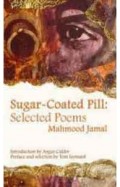The Speech Of The Birds: Mantiqu t-Tair
By: Farid Ud-din Attar
-
Rs 899.10
- Rs 999.00
- 10%
You save Rs 99.90.
Due to constant currency fluctuation, prices are subject to change with or without notice.
Mantiqu t-Tair is one of the masterpieces of Persian literature of which a complete and annotated translation into English is here presented for the first time as The Speech of the Birds . The text revolves around the decision of the birds of the world to seek out a king. Their debilitating doubts and fears, the knowing counsel of their leader Hoopoe, and their choice of the Simurgh as a king, is in reality an allegory of the spiritual path of Sufism with its demands, its hazards and its infinite rewards. The poem contains many admonitory anecdotes and exemplary stories, including numerous references to some of the early Muslim mystics such as Rabi a al- Adawiyya, Abu Sa id ibn Abi l-Khair, Mansur al-Hallaj and Shibli, among others. Brought up in a Sufi ambience, the author of this work, Faridu d-Din Attär (1145-1221) was an apothecary who lived near Nishapur. Attar, whom legend describes as having taken to the Sufi path in carnest after he witnessed a dervish surrender his soul outside his shop, went on to become one of the most famous Sufi poets in history, best known for his classical work the Mantiqu t-Tair. In The Speech of the Birds, Peter Avery has not only given us a precise and moving translation, but also ample annotation providing much information to fill in what Attär would have expected his readers to know. The result is a fascinating insight into a remarkable aspect of Islam: the world of the ecstatic love and ultimate sacrifice of the Persian mystics who, in their wise discernment of the true meaning of life, relinquish all for All. The Speech of the Birds will be of interest to everyone who values great literature, as well as to all students of Persian and Sufism.
Mantiqu t-Tair is one of the masterpieces of Persian literature of which a complete and annotated translation into English is here presented for the first time as The Speech of the Birds . The text revolves around the decision of the birds of the world to seek out a king. Their debilitating doubts and fears, the knowing counsel of their leader Hoopoe, and their choice of the Simurgh as a king, is in reality an allegory of the spiritual path of Sufism with its demands, its hazards and its infinite rewards. The poem contains many admonitory anecdotes and exemplary stories, including numerous references to some of the early Muslim mystics such as Rabi a al- Adawiyya, Abu Sa id ibn Abi l-Khair, Mansur al-Hallaj and Shibli, among others. Brought up in a Sufi ambience, the author of this work, Faridu d-Din Attär (1145-1221) was an apothecary who lived near Nishapur. Attar, whom legend describes as having taken to the Sufi path in carnest after he witnessed a dervish surrender his soul outside his shop, went on to become one of the most famous Sufi poets in history, best known for his classical work the Mantiqu t-Tair. In The Speech of the Birds, Peter Avery has not only given us a precise and moving translation, but also ample annotation providing much information to fill in what Attär would have expected his readers to know. The result is a fascinating insight into a remarkable aspect of Islam: the world of the ecstatic love and ultimate sacrifice of the Persian mystics who, in their wise discernment of the true meaning of life, relinquish all for All. The Speech of the Birds will be of interest to everyone who values great literature, as well as to all students of Persian and Sufism.
The Speech Of The Birds: Mantiqu t-Tair
By: Farid Ud-din Attar
Rs 899.10 Rs 999.00 Ex Tax :Rs 899.10
Zubin Mehta: A Musical Journey (An Authorized Biography)
By: VOID - Bakhtiar K. Dadabhoy
Rs 892.50 Rs 1,050.00 Ex Tax :Rs 892.50
How I Learned to Understand the World: A Memoir
By: Hans Rosling
Rs 1,447.50 Rs 2,895.00 Ex Tax :Rs 1,447.50
Rococo and Other Worlds the Poems of Afzal Ahmed Syed
By: Afzal Ahmed Syed
Rs 521.25 Rs 695.00 Ex Tax :Rs 521.25
Rumi The Book Of Love Poems Of Ecstasy And Longing
By: Coleman Barks
Rs 3,055.50 Rs 3,395.00 Ex Tax :Rs 3,055.50
How I Learned to Understand the World: A Memoir
By: Hans Rosling
Rs 1,447.50 Rs 2,895.00 Ex Tax :Rs 1,447.50
Rococo and Other Worlds the Poems of Afzal Ahmed Syed
By: Afzal Ahmed Syed
Rs 521.25 Rs 695.00 Ex Tax :Rs 521.25
Still Life: The instant Sunday Times bestseller and Waterstones Book of the Month
By: Sarah Winman
Rs 2,035.75 Rs 2,395.00 Ex Tax :Rs 2,035.75
Collusion Secret Meetings Dirty Money, and How Russia Helped Donald Trump Win
By: Luke Harding
Rs 3,650.75 Rs 4,295.00 Ex Tax :Rs 3,650.75
Zubin Mehta: A Musical Journey (An Authorized Biography)
By: VOID - Bakhtiar K. Dadabhoy
Rs 892.50 Rs 1,050.00 Ex Tax :Rs 892.50
The Speech Of The Birds: Mantiqu t-Tair
By: Farid Ud-din Attar
Rs 899.10 Rs 999.00 Ex Tax :Rs 899.10
How I Learned to Understand the World: A Memoir
By: Hans Rosling
Rs 1,447.50 Rs 2,895.00 Ex Tax :Rs 1,447.50
Rococo and Other Worlds the Poems of Afzal Ahmed Syed
By: Afzal Ahmed Syed
Rs 521.25 Rs 695.00 Ex Tax :Rs 521.25












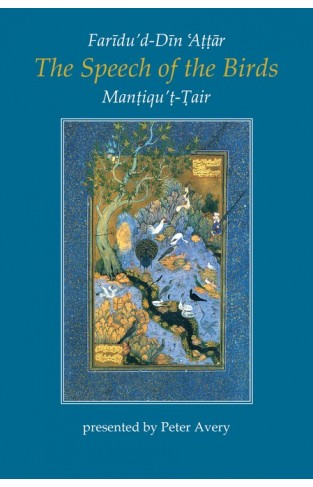
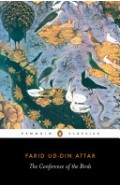
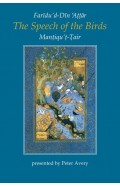
-120x187.jpg?q6)





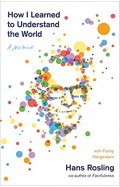

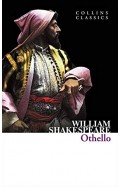
-120x187.jpg?q6)
